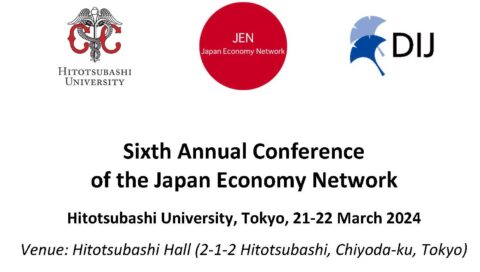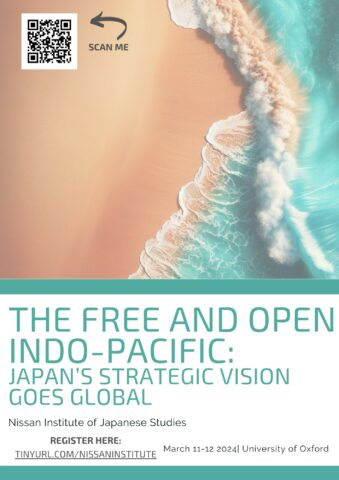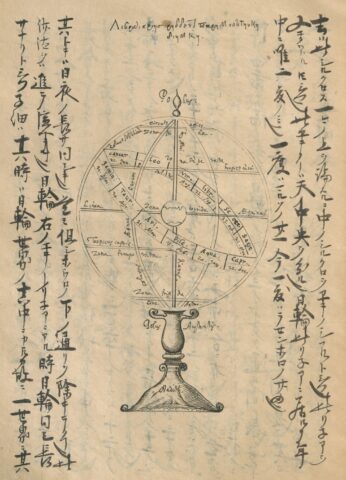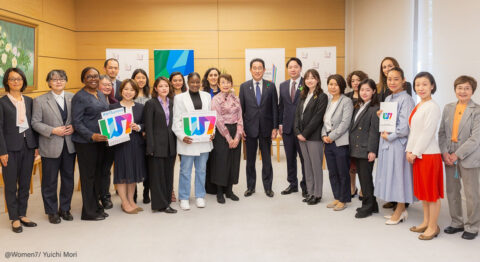イベント&アクティビティ
Film screening and discussion of patterns of moving to rural Japan

Japan’s regions have been challenged by demographic decline and an aging population for some decades. Despite or even because of these challenges, a small number of people from urban centres of the country decide to move to rural areas. This DIJ Forum (onsite only) combines two different perspectives on migration patterns from urban to rural Japan. Filmmaker Sonja Blaschke introduces her film “Reisfeld statt Tokio” (in German, with English subtitles; 30min), highlighting the story of a young urban woman and her new lifestyle in a small village in the mountains of rural Japan. Tomoo Matsuda then introduces cases of urban professionals who decide to live temporarily or permanently in Japan’s countryside. Challenging the traditional pattern of migration to the nation’s capital, he illustrates the concept of “gyaku-sankin kōtai”, exploring the merits of moving to rural areas. Details and registration here
Sonja Blaschke, freelance journalist
Tomoo Matsuda, Mitsubishi Research Institute
UPDATED European-Japanese dialogue on ‘How to deal with China’
 Please note that this event has changed to an online only format. Given China’s indisputable economic and geopolitical importance, China cannot be ignored, passed or de-coupled. It is at the same time a partner, a competitor as well as an ideological and potential military opponent in the evolving multipolar world order. When dealing with China, how should we balance these different relational aspects? How can we maintain a constructive exchange without jeopardizing our own interests? Through a dialogue between European and Japanese China experts, the conference How to deal with China will address these questions from different perspectives. Speakers include Hans van Ess (LMU Munich), Mats Lennart Harborn (Traton China Group), Shigeto Sonoda (University of Tokyo), Osamu Mogi (Kikkoman Corporation), and Junichiro Ikeda (Mitsui O.S.K. Lines). The conference is co-organised by the University of Tokyo’s Global Asian Studies, the Keizai Doyukai, and the DIJ. Details and registration here
Please note that this event has changed to an online only format. Given China’s indisputable economic and geopolitical importance, China cannot be ignored, passed or de-coupled. It is at the same time a partner, a competitor as well as an ideological and potential military opponent in the evolving multipolar world order. When dealing with China, how should we balance these different relational aspects? How can we maintain a constructive exchange without jeopardizing our own interests? Through a dialogue between European and Japanese China experts, the conference How to deal with China will address these questions from different perspectives. Speakers include Hans van Ess (LMU Munich), Mats Lennart Harborn (Traton China Group), Shigeto Sonoda (University of Tokyo), Osamu Mogi (Kikkoman Corporation), and Junichiro Ikeda (Mitsui O.S.K. Lines). The conference is co-organised by the University of Tokyo’s Global Asian Studies, the Keizai Doyukai, and the DIJ. Details and registration here
Hybrid Study Group on education at Japan’s National Defense Academy

After the physical and moral devastation brought by the defeat in the Asia-Pacific War, Japanese administrations in the Cold War era charted a course of gradual rearmament against the backdrop of substantial anti-militarist sentiments among the wider society. This tension placed members of the newly rebranded Self-Defense Forces (SDF) in an uneasy position. This research project examines the institutional socialisation of the SDF’s leadership through a one-year ethnography of Japan’s National Defense Academy (NDA), where the bulk of the future senior officers of the SDF’s three branches are educated. Through this anthropological inquiry, this presentation seeks to answer how history, tradition, and identity of the Japanese SDF are negotiated at the NDA. Details and registration here
DIJ co-organizes Annual Conference of the Japan Economy Network
 Together with Hitotsubashi University, the DIJ co-organizes this year’s Sixth Annual Conference of the Japan Economy Network (JEN) on March 21-22. The conference features thirty-six speakers in ten sessions, including a dinner keynote speech by Nobuko Nagase (Ochanomizu University), chaired by DIJ economist Markus Heckel. DIJ advisory board member David Chiavacci (University of Zurich) will give a presentation on “Transnationalism and foreign workers in Japan: Between state policies and market forces”. The full programme is available here (PDF).
Together with Hitotsubashi University, the DIJ co-organizes this year’s Sixth Annual Conference of the Japan Economy Network (JEN) on March 21-22. The conference features thirty-six speakers in ten sessions, including a dinner keynote speech by Nobuko Nagase (Ochanomizu University), chaired by DIJ economist Markus Heckel. DIJ advisory board member David Chiavacci (University of Zurich) will give a presentation on “Transnationalism and foreign workers in Japan: Between state policies and market forces”. The full programme is available here (PDF).
Hybrid Study Group discusses Japanese career women’s identity conflict

This presentation explores how career-minded Japanese women experience and respond to identity conflict. Based on 125 in-depth interviews with Japanese women who face incompatible expectations for their roles in their professional and private lives, it shows how this dilemma leads to an identity conflict to which the women react with different identity work strategies: Individuals may either sacrifice their career ambitions or forego starting a family; alternatively, they might attempt to reconcile professional and personal role expectations by relinquishing perfectionism in both spheres, or seek partners whose personal expectations align more closely with their career objectives. While these strategies may resolve incompatible external role expectations, this study reveals that they do not effectively diminish internalized dilemmas. Possible solutions to resolve the dilemma will be discussed. Details and registration here
Harald Kümmerle speaker at Oxford’s Free and Open Indo-Pacific conference

DIJ researcher Harald Kümmerle will present his paper on “‘Data Free Flow with Trust’ as a pillar of economic security in the digital realm” at the conference The Free and Open Indo-Pacific: Japan’s Strategic Vision Goes Global at Oxford University on March 11. Harald’s paper will highlight Japan’s initiative Data Free Flow with Trust (DFFT) as an important aspect of the development of economic security in the digital realm. He will discuss DFFT as a promising regulatory framework for the cross-border flow of non-personal data. One focus of his talk will lie on the data regulation and economic security discourse involving a variety of actors and positions that followed a scandal concerning the access of private data of Japanese social media users by a Chinese subcontractor firm. The two-day conference exploring the Indo-Pacific’s role in global politics is hosted by Oxford University’s Nissan Institute of Japanese Studies. Details here
Hybrid Study Group on AI and Jesuit Written Artefacts

Between 1595 and 1610, the first recorded contacts between Europeans and Japanese took place. In the Jesuit Colleges in Kyushu, lectures were delivered on Aristotelian philosophy, theology, and Ptolemaic cosmology. In Germany, almost 450 years later in 2019, this tripartite work on science and religion is discovered in the Herzog August Bibliothek Wolfenbüttel: the first complete Japanese translation of the so-called Compendia compiled in Japan. Bridging the gap between computer science and historical linguistics, this talk will present a novel approach of understanding this written artefact by applying the possibilities artificial intelligence offers. It will address the challenges of finetuning AI-powered tools to historical Japanese, training AI models for text recognition in multiple text directions and writing systems, coding scripts tailored to historical romanization, and conducting quantitative analysis of a comparative text corpus of Jesuit codices. Details and registration here
Hybrid Study Group on Feminist Foreign Policy in Japan

In recent years, feminist foreign policy (FFP) has become a buzzword in foreign policy. Since 2015, the Japanese government has been trying to push for more gender equality in its foreign policy and adopted a National Action Plan on Women, Peace and Security. In 2023, the Kishida cabinet appointed the second woman in Japan’s history as foreign minister and Japan’s latest National Action Plan includes even more gender-sensitive norms. At the same time, Japan is under intense scrutiny for consistently ranking last among G7 countries on gender equality and women’s empowerment. This clashes sharply with Japan’s international image as an ethically “good state”. Against this background, this lecture examines how Japan attempts to catch up with the international trend of FFP and the promotion of pro-gender norms in its foreign policy. Details and registration here





 Open Access
Open Access
